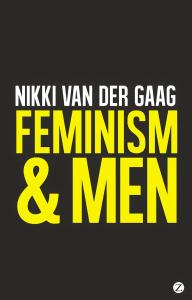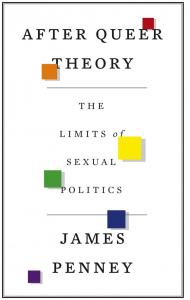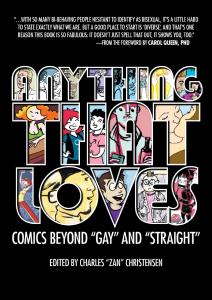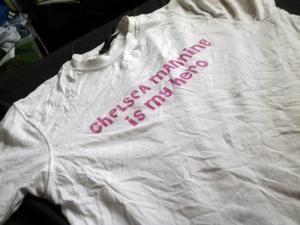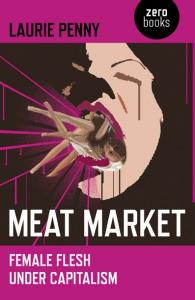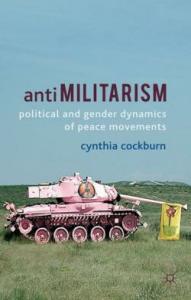On 12 June, a gunman used an assault rifle and a semiautomatic pistol to shoot dead 49 people during a Latin night at a gay nightclub, the Pulse, in Orlando, Florida, USA. It was the worst attack against LGBT people – and the worst mass shooting – in US history. Longtime gay rights activist and nonviolent revolutionary…
Gender
Feminism is as relevant today as it’s ever been. Recent research by the National Society for the Prevention of Cruelty to Children and the universities of Bristol and Central Lancashire found more than 40 percent of girls between the ages of 13 and 17 in England said that they had been coerced into sex acts, while one in five said that they had suffered physical violence or intimidation from boyfriends.
The survey also found that 39% of teenage boys admitted to regularly viewing…
[This is a short extract from a powerful new book by a former Menwith Hill peace camper, grounded in dozens of interviews with feminist activists around the UK. Radical Feminism provides a guide to the development of the women’s liberation movement since the 1970s, deals with the challenges of queer theory, and centres itself in the history and politics of the Reclaim The Night marches against male violence against women.
We’ve chosen to print this section on trans…
Queer theory is a way of thinking that undermines traditional ways of discussing sexuality and all that it entails. It can be an amazingly liberating tool which helps us to see the arbitrariness of typical gender roles, and it's possible that you've already come across two of its most famous proponents: Judith Butler and Eve Kosofsky Sedgwick. But is it also often an exercise in academic, bourgeois titillation?
Penney denounces the, often over-refined, abstruse writing that, he…
‘Could the refusal to accept the existence of bisexuality be a root cause of homophobia?’ is the intriguing question that motivated the ‘not-very-bisexual’ Zan Christensen to pull together this colourful comics anthology exploring people’s diverse experiences of ‘non-binary sexuality’.
A gay man, he had read an article in the New York Times concerning a psychological experiment suggesting that over 20% of self-identified ‘highly straight’ people secretly harbour some same…
Until recently the 1911 Census Boycott was seen as another colourful Suffragette tactic in the ongoing campaign for women's suffrage. But Vanishing for the Vote reveals it to have been an episode of high drama – personal and political, private and public. In proposing that women boycott the census, Suffragettes intensified the 'battle for democracy', asking, Which side are you on: the paternalistic state, or the grassroots campaign for citizenship?
This was a near-perfect…
Chelsea Manning was already a hero of mine after releasing hundreds of thousands of classified documents revealing US war crimes in Iraq and Afghanistan. Her whistleblowing was digital direct action akin to the 1960s Spies for Peace revelations of UK preparations for nuclear war and exposure of the US COINTELPRO programme in the 1970s.
And then, as the world watched a military judge give her a 35-year sentence, she opened herself up with a beautiful and articulate statement: ‘I want…
I read the letter from Mary Winter [who had accused men’s groups of being ‘the counter-attack on the Women’s Liberation Movement’] with anger, then amazement, and finally with sadness. It seems that not only do male readers not know much about the women’s movement but also some female readers not know much about ‘Men Against Sexism’.
‘Men Against Sexism’ (MAS) avoid the use of the term men’s liberation because it does sound arrogant and does not make clear the great…
PHOTO: Hannah Daisy
At the end of July, women restored missing hair to statues of women in central London to promote a month-long campaign of body-hair-growing. Armpits4August aims to combat ‘a physically-, socially-, and mentally-damaging image of what is “natural”’. The group said: ‘by growing our body hair we are working towards having pride in our body hair, not shame.’ The group also raised money for Verity, the charity for women with polycystic ovarian syndrome.
PN readers may recall that I’m a big fan of Laurie Penny (aka Penny Red). I’m an equally big fan of feminism, so I was keen to read Meat Market, her series of essays on the subject.
Penny is a serious and passionate writer, and there’s a lot to commend in this book. The opening chapter on sexualisation demonstrates how disempowering the supposedly ‘liberating’ raunch culture actually is, and how it serves commercial rather than individual interests.
Similarly, the…
I’ve never been that drawn to reading histories of the peace movement but this book, with its particular perspective, has been an exception. I do like a bit of theory and this book has just enough of it, accessibly written, to provide a framework for analysing and understanding the diverse cross-national case studies offered.
The framework is a feminist one which, as Cynthia Cockburn argues, ‘has opened up a pathway for the left’, and is a necessary rather than optional tool for…
At a recent seminar on peace building in Africa, the question of why gender and not women was raised. What is the difference? Although I was surprised that this question came up at all, it made me realise that one makes the assumption that this question has been sufficiently dealt with and that everyone is moving on from there.
Yet, this question helped me to understand why we often remain stuck in our attempts to transform gender relations in our society. The politics of gender…
The 31 October 2000 was more than just a Halloween celebration for thousands of women watching the UN Security Council on that day. Security Council Resolution 1325 (2000) was an unprecedented event—a unanimous adoption of the first resolution on women, peace and security. Among other features it calls for the prosecution of crimes against women; increased protection of women and girls during war; more women to be appointed to UN peacekeeping operations and field missions; and more women in…
David
On the face of it, and for most of the time, men and women have been able to work well together in the TP campaign, but I am far from sure why this is so. I recall the early discussions about a related issue —the extent to which we should have a rigorous approach to decision-making-by-consensus. We have opted for a more easy-going style on that one, on the ground of pragmatism, but we get quite uneasy about it from time to time in spite of regular checking out with our…
War and militarism are highly gendered phenomena—they are difficult if not impossible to understand without reference to gender.
In the first place, national leaders who want to shape our ideas so that we favour fighting a war often address us in gendered terms. They appeal to the nation's manhood to stiffen its spine, recall its heroic past and protect its women-and-children. They represent warriors as manly; draft resisters as wimps and sissies. The technologies of war fighting…



